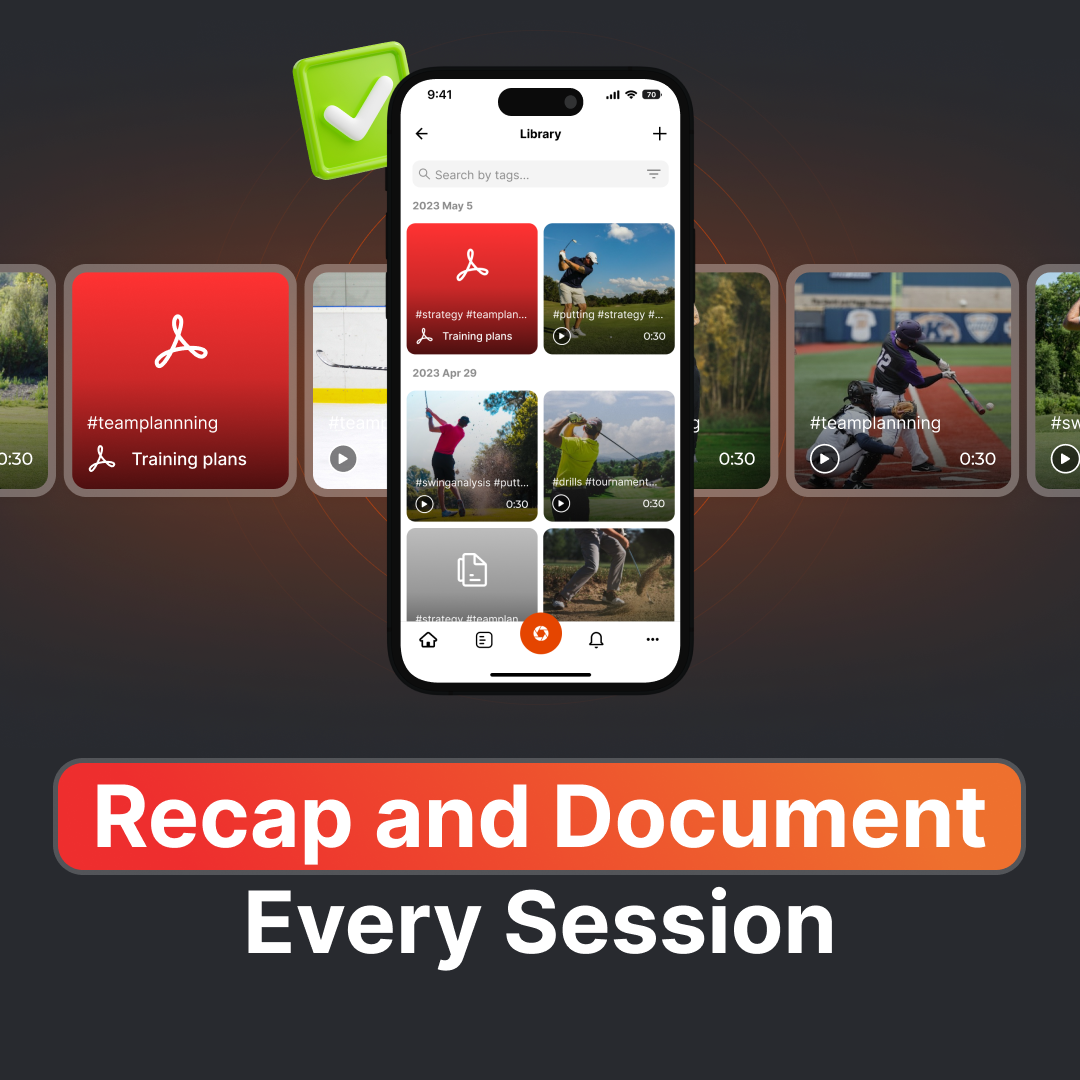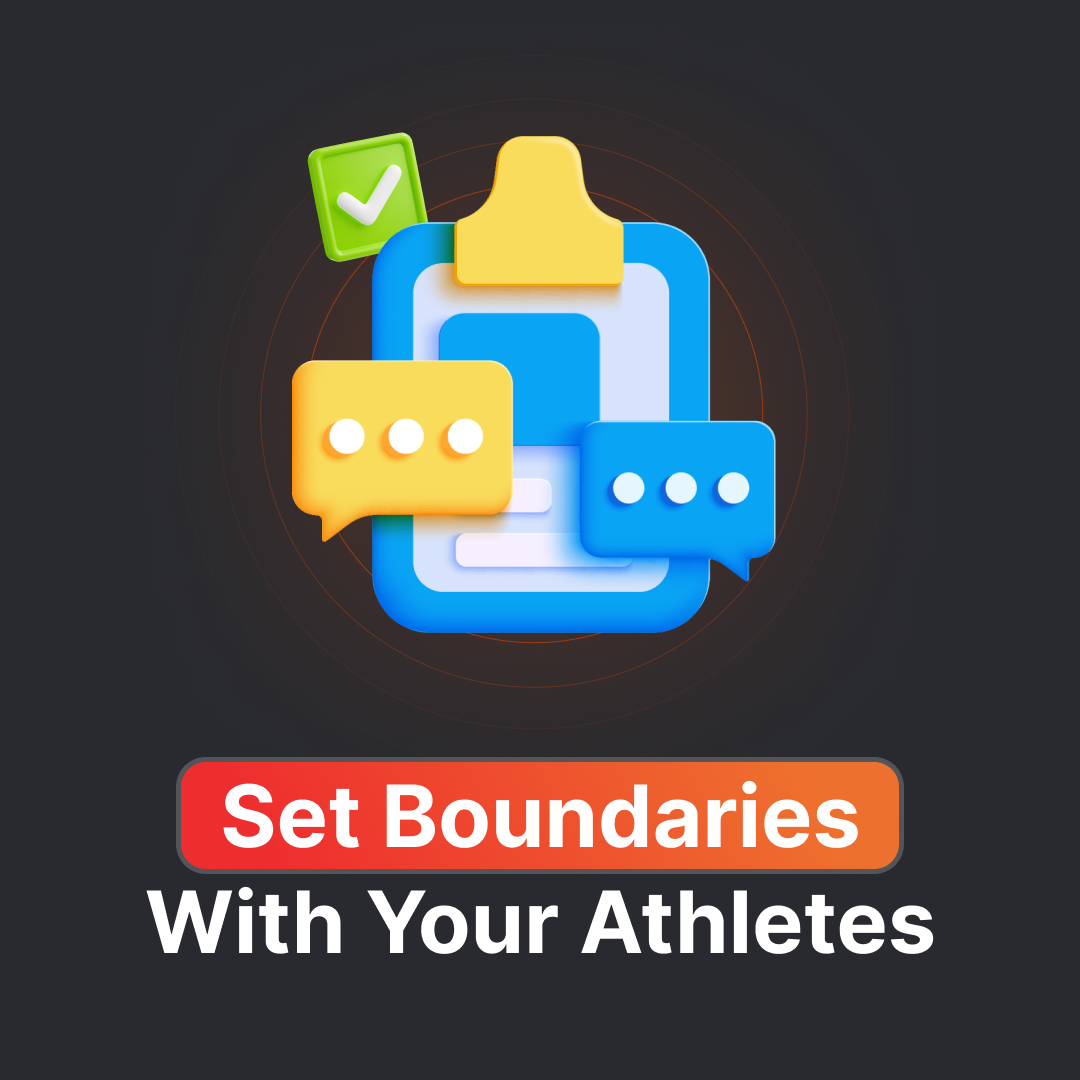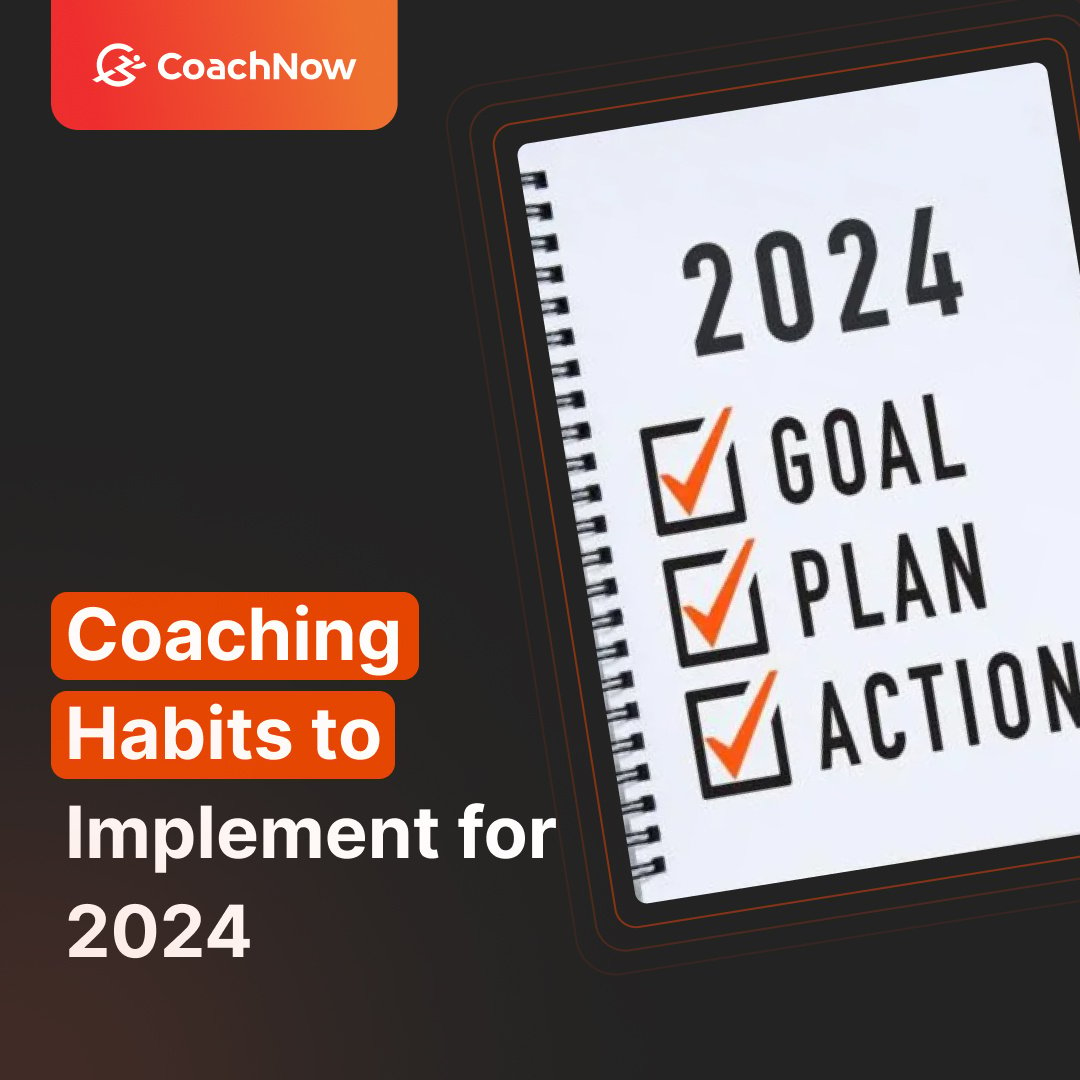A few months back, I wrote a post titled “ How to be a Great Coach in 2024”. In it, I emphasized the importance of moonshot thinking, and setting yourself up for exponential business growth in the new year and beyond.
But setting goals is just the beginning.
To really hit those moonshots, you need a plan.
And, more importantly, you need to build habits that ensure you stay on track for your goals.
So today, I want to share the top 3 habits that, if implemented, will put you on the right trajectory toward your moonshots for 2024.
Some of this stuff will likely be familiar to those of you who’ve followed the blog for a while... But all of it bears repeating.
Time and time again I’ve seen these changes make a massive difference in coaches’ lives - they’ll save you time, increase your income, and allow for more flexibility in the delivery of your expertise.
Let’s get to it.
But setting goals is just the beginning.
To really hit those moonshots, you need a plan.
And, more importantly, you need to build habits that ensure you stay on track for your goals.
So today, I want to share the top 3 habits that, if implemented, will put you on the right trajectory toward your moonshots for 2024.
Some of this stuff will likely be familiar to those of you who’ve followed the blog for a while... But all of it bears repeating.
Time and time again I’ve seen these changes make a massive difference in coaches’ lives - they’ll save you time, increase your income, and allow for more flexibility in the delivery of your expertise.
Let’s get to it.

Habit 1: Offer Programs, Not Lessons
If you do nothing else in 2024, make this the year you only accept recurring revenue by saying goodbye to “lessons” for good.
Take time THIS WEEK to audit what you’re selling. If you’re ONLY selling your time for money, make a change this week and map out a development program you can offer.
Make it a habit: when you onboard a new athlete, only speak in terms of their “programming”.
Take time THIS WEEK to audit what you’re selling. If you’re ONLY selling your time for money, make a change this week and map out a development program you can offer.
Make it a habit: when you onboard a new athlete, only speak in terms of their “programming”.
Per my earlier advice, start with an agreed upon minimum time commitment you expect from them. Speak in terms of 3-6 month commitments, make the expected commitment abundantly clear, and stay firm on what you expect during that period of time.
And never refer to your coaching in terms of “lessons”. You sell “programs” that include “sessions”.
It may seem like a small thing, but reframing your offer can make a huge difference in how your athlete approaches the coaching relationship. I rant all about this in this blog if you’d like to learn more: “Sessions, Not Lessons”.
Trust me. Getting in the habit of creating programs will make your life way easier. Preventing burnout is key to a successful career - and building good habits around your programming is one of the most important things you can do.
And never refer to your coaching in terms of “lessons”. You sell “programs” that include “sessions”.
It may seem like a small thing, but reframing your offer can make a huge difference in how your athlete approaches the coaching relationship. I rant all about this in this blog if you’d like to learn more: “Sessions, Not Lessons”.
Trust me. Getting in the habit of creating programs will make your life way easier. Preventing burnout is key to a successful career - and building good habits around your programming is one of the most important things you can do.
More on this topic in the following posts:
How to Introduce Long-Term Development Programs into Your Coaching Offer
How to Make $100,000+/ Year Coaching Less Than 30 Hours a Week (Yes, Really)
Getting Started with Long-Term Development Programs - 3 Key Components
How to Introduce Long-Term Development Programs into Your Coaching Offer
How to Make $100,000+/ Year Coaching Less Than 30 Hours a Week (Yes, Really)
Getting Started with Long-Term Development Programs - 3 Key Components

Habit 2: Recap and Document Every Session
Spoiler alert: Most of your athletes don't practice what you teach them in your live sessions. They obviously WANT to practice correctly, but they just don’t remember exactly HOW they should be practicing.
This is why video recaps are CRUCIAL.
By "video recap", I mean a 1-3 minute video taken at the end of EVERY coaching session. An effective recap always includes two key elements: WHAT to practice and WHY.
These videos should be filmed and posted while you’re with your athlete. I go over this concept in detail in this post: Athlete Retention and "Video Recaps" .
It’s another mindset shift that I always advocate for. I love the phrase “athletes practice, pros train”. A big distinction between a pro and an amateur comes down to their INTENTION when training.
By implementing recaps into your coaching you give your athletes intentionality to their practice and help them contextualize the how, what, and why of a particular move, drill or shot etc..
If you haven’t yet implemented recaps,this is a habit you need to adopt today. It makes a HUGE difference for your athletes and saves you tons of time.
Athlete Retention and "Video Recaps"
3 Key Ingredients to Level Up Your Live Coaching Sessions
The Magic of Video Recaps | Change Your Coaching Business in 2 Minutes
This is why video recaps are CRUCIAL.
By "video recap", I mean a 1-3 minute video taken at the end of EVERY coaching session. An effective recap always includes two key elements: WHAT to practice and WHY.
These videos should be filmed and posted while you’re with your athlete. I go over this concept in detail in this post: Athlete Retention and "Video Recaps" .
It’s another mindset shift that I always advocate for. I love the phrase “athletes practice, pros train”. A big distinction between a pro and an amateur comes down to their INTENTION when training.
By implementing recaps into your coaching you give your athletes intentionality to their practice and help them contextualize the how, what, and why of a particular move, drill or shot etc..
If you haven’t yet implemented recaps,this is a habit you need to adopt today. It makes a HUGE difference for your athletes and saves you tons of time.
Athlete Retention and "Video Recaps"
3 Key Ingredients to Level Up Your Live Coaching Sessions
The Magic of Video Recaps | Change Your Coaching Business in 2 Minutes

Habit 3: Set Boundaries With Your Athletes
It’s essential to the success of your business, and your athletes, to set clear boundaries surrounding communication.
Obviously, you want to go above and beyond for your athletes. But if you’re not mindful of boundaries, eventually you’ll burn out ( like I did…).
Time is the most important resource that you have, so protect it. Determine clearly when your working hours are (and aren’t), and set aside specific blocks of times in the week to review video footage, questions, and comments on your athletes' posts. Provide feedback during that set window for all of your athletes in one fell swoop.
By clearly defining the quantity and timing of your feedback in your offer, you encourage your athletes to stay actively engaged. If they pay for this feedback and it's "use it or lose it", they will be more likely to hold themselves accountable.
When you focus on the importance of work life balance, you’ll show up as the best version of yourself both for your athletes and your business.
More on this in the posts below:
3 Reasons Why You’ll Quit Your Coaching Job (DON’T MAKE THESE MISTAKES)
3 Ways to Establish Boundaries With Athletes
Be a Little Selfish
Obviously, you want to go above and beyond for your athletes. But if you’re not mindful of boundaries, eventually you’ll burn out ( like I did…).
Time is the most important resource that you have, so protect it. Determine clearly when your working hours are (and aren’t), and set aside specific blocks of times in the week to review video footage, questions, and comments on your athletes' posts. Provide feedback during that set window for all of your athletes in one fell swoop.
By clearly defining the quantity and timing of your feedback in your offer, you encourage your athletes to stay actively engaged. If they pay for this feedback and it's "use it or lose it", they will be more likely to hold themselves accountable.
When you focus on the importance of work life balance, you’ll show up as the best version of yourself both for your athletes and your business.
More on this in the posts below:
3 Reasons Why You’ll Quit Your Coaching Job (DON’T MAKE THESE MISTAKES)
3 Ways to Establish Boundaries With Athletes
Be a Little Selfish
There’s no time like the present to make your plan and start implementing these habits.
By only selling programs (recurring revenue), using video recaps at EVERY session, and setting proper boundaries, I’m confident you can make 2024 your best year yet.
As always, just reach out if you have questions or thoughts. See you next week!
By only selling programs (recurring revenue), using video recaps at EVERY session, and setting proper boundaries, I’m confident you can make 2024 your best year yet.
As always, just reach out if you have questions or thoughts. See you next week!
